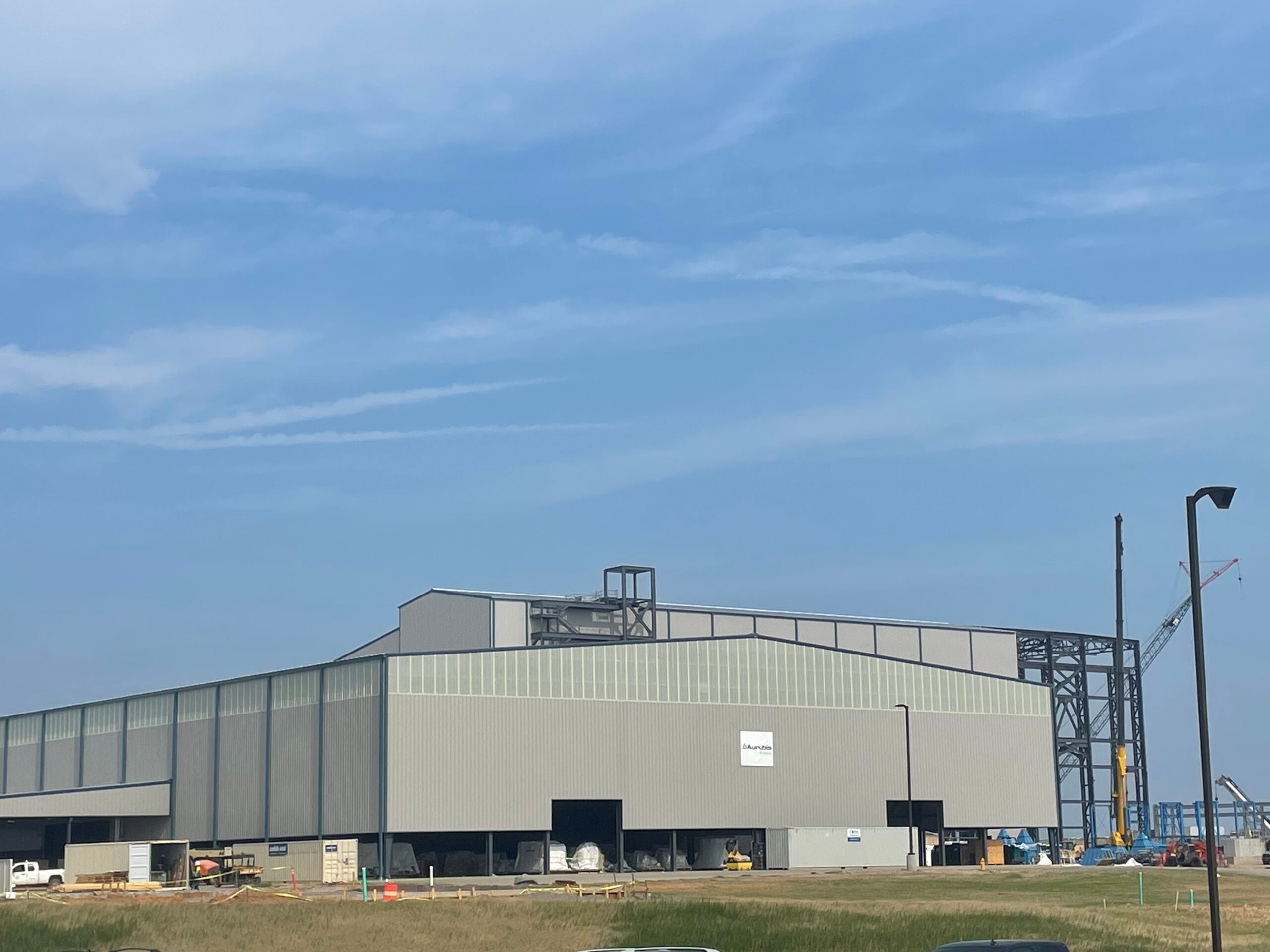Correction note: an earlier version of this story erroneously stated that Inge Hofkens had moved to Augusta to live, when in fact she is only visiting; this has been corrected.
The construction of Aurubis Richmond, the new copper smelting plant by German metal recycler Aurubis, is steady and on schedule since breaking ground at Augusta Industrial Park in June of last year.
The company initially invested more than $300 million in its facility, then projected to produce roughly 90,000 tons in complex metals once it became operational. Then, in December of last year, Aurubis announced it would be nearly doubling its investment and expanding the plant to include another recycling module.
Though the announcement came months after initial construction began, Inge Hofkens, chief operations officer of multimetal recycling and member of Aurubis’ executive board, says that the path toward expansion was clear from the beginning.
“From a strategic thinking process, it was the way we wanted to go, if you look at market acceptance, and the testing that we did there,” said Hofkens.
The viability of the market was always there, and the development of the facility is a “modular concept,” and built to “repeat,” said Aurubis Richmond president and managing director David Schultheis. This encouraged going through with earlier considerations to expand on what will be the company’s first greenfield plant in 100 years.
“We are fully aware of the challenges and respect those, but when broke ground, the way we were received here — market acceptance and the feedback we received — really conveyed a clear message,” said Schultheis. “And so we decided to accelerate, also to leverage synergies and construction and additional opportunities there very clearly.”
Furthermore, Aurubis is aware of its impact its Augusta location will have on the Southeast’s in general — and Georgia’s in particular — place in the growing electronic vehicle (EV) manufacturing corridor.
“I think we are a perfect fit in the ecosystem,” Hofkens said, from delivering necessary metals into the EV chain as well as, in the longer run, “also participating in the circling back of the wastes that are being generated in that ecosystem.”
Copper wire extensively used in electronics, including wires, cables and circuit boards, making it a critical component in the manufacturing of EV’s. Earlier this month, the U.S. Department of Energy (DOE) added copper to its list of materials critical to global clean energy technology supply chains.
“Printed circuit boards means copper,” said Hofkens.
Alongside copper, the smelting facility will also process metals such as nickel, platinum and palladium, which are also key manufacturing materials in the EV production chain.
Aurubis Richmond, Schultheis said, is committed to building a U.S. organization in Augusta. It projects it will bring roughly 200 jobs to the area once it’s completed in 2026, but it’s already hiring, and preparing for its workforce down the road. The company is currently working to develop training programs for students, much like its apprenticeship training in Germany.
Rebecca Stout, vice president of Economic Development at Augusta Technical College, even visited Aurubis headquarters in Hamburg, Germany last fall, amid the college’s many burgeoning manufacturing training initiatives.
“We’re here to stay,” said Schultheis, noting Aurubis’ upcoming initiatives that include social benefits plan to give back to the community, as well as Aurubis staff, including himself, who have moved to the Garden City. “We’re going to make sure that we immerse ourselves here in the local culture and connect.”
The first phase of Aurubis Richmond is still scheduled to be operational in 2024.
Skyler Q. Andrews is a staff reporter for The Augusta Press. Reach him at skyler@theaugustapress.com.










